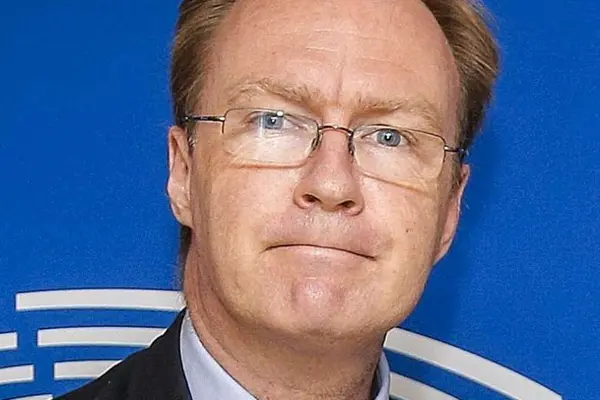Britain's Brexit plans were in turmoil yesterday after its ambassador to the European Union (EU) quit, blasting "ill-founded arguments and muddled thinking", less than three months before the process is due to start.
Sir Ivan Rogers' resignation and sharp criticism shed new light on the difficulties faced by Prime Minister Theresa May, who wants to hand in Britain's notice for withdrawing from the EU by the end of March.
The move to trigger the Article 50 mechanism would start a two- year clock ticking on sorting out future relations between Britain and the EU before it leaves the bloc.
Sir Ivan was Britain's permanent representative to the 28-nation EU. He quit on Tuesday, saying the government lacked experienced negotiators. He called for stronger working relationships between Mrs May's London-based team and Britain's permanent post in the Belgian capital.
Supporters of close EU ties bemoaned his departure as a "body blow", while backers of a clean break from the bloc cheered his resignation as a sign that the British government is committed to regaining complete control of immigration, laws and budget - even if that means fraying trade ties.
In a message announcing his resignation to staff in Brussels, Sir Ivan urged colleagues to provide British ministers with their "unvarnished" understanding through Brexit negotiations - "even where this is uncomfortable"."Britain's partners will take this as a sign that May's government is heading for a hard Brexit which puts sovereignty ahead of economic integration with the EU," said Mr Charles Grant, director of the Centre for European Reform.
"I hope you will continue to challenge ill-founded arguments and muddled thinking and that you will never be afraid to speak the truth to those in power," he said in the note, obtained by the BBC and published on its website. "The government will only achieve the best for the country if it harnesses the best experience we have."
Sir Ivan is the most senior figure from Britain's politically neutral civil service to voice concerns over preparations for the talks.
Dismissed by Brexit hardliners as an EU fanatic, he was viewed by advocates of a softer form of Brexit as an experienced asset with strong diplomatic contacts and an openness to find common ground. His sudden exit at such a delicate juncture signals a hardening of positions, raising the chances that Britain will quit the single market and revert to a tariff regime.
Last month, Mrs May's office was forced to downplay remarks attributed to Sir Ivan saying that it could take a decade to negotiate a free trade deal with the EU. Her spokesman clarified that he was merely communicating to London the views of other EU governments.
The episode showed how his observations, however nuanced, inevitably risked exploding when they landed in the political minefield of Brexit.
On Tuesday, Mrs May's government said Sir Ivan was scheduled to depart at the end of his term in November but had resigned early to enable a replacement to be appointed before exit negotiations begin.
In his note to staff, he outlined concerns about shortcomings in preparations for the talks. He said "serious multilateral negotiating experience" is "in short supply" in the British government - unlike in the European Commission, which will lead the EU side in the talks.
In a thinly veiled rebuke to Brexit-supporting politicians, he added: "Contrary to the beliefs of some, free trade does not just happen."
(THE STRAITS TIMES)
 简体中文
简体中文

